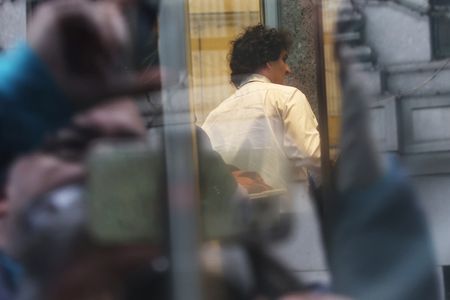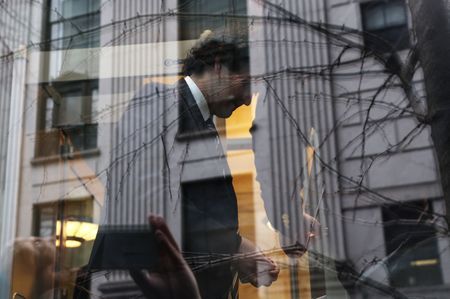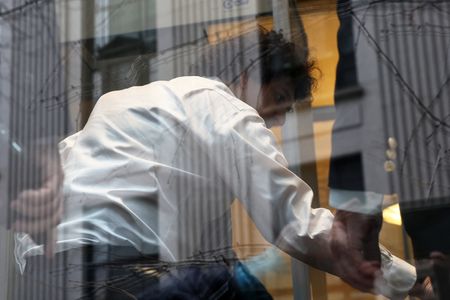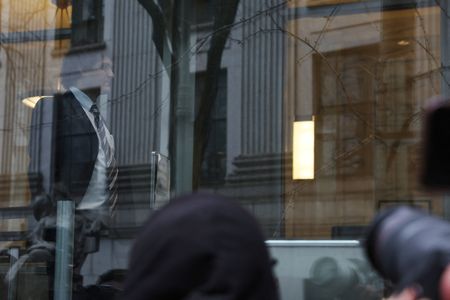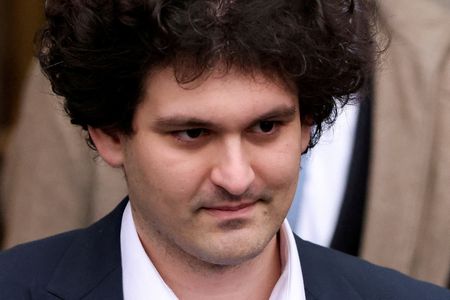By Luc Cohen
NEW YORK (Reuters) – A U.S. judge on Thursday extended a ban on FTX cryptocurrency exchange founder Sam Bankman-Fried’s ability to contact employees of companies he once controlled and use encrypted messaging technology while out on bail awaiting trial on fraud charges.
U.S. District Judge Lewis Kaplan on Feb. 1 had temporarily barred Bankman-Fried from contacting any current or former employees of FTX or Alameda Research, his hedge fund, after prosecutors raised concerns that the 30-year-old former billionaire may be trying to tamper with witnesses.
As a condition of his release on $250 million bond, the judge also prevented Bankman-Fried from using messaging apps such as Signal that let users auto-delete messages.
After rejecting an agreement between defense lawyers and prosecutors to loosen those conditions on Tuesday, Kaplan on Thursday said the restrictions would remain in place until Feb. 21 and instructed both sides to explain by Feb. 13 how they could be sure Bankman-Fried would not delete electronic messages.
“I am far less interested in the defendant’s convenience” than in preventing possible witness-tampering, Kaplan said at a hearing in Manhattan federal court.
“There is still snail-mail and there is still email and there are all kinds of ways to communicate that don’t present the same risks,” Kaplan added.
Defense lawyers have argued that Bankman-Fried’s efforts to contact an FTX general counsel and its new chief executive John Ray were attempts to offer “assistance” and not interfere.
Bankman-Fried, accused by prosecutors of cheating investors and causing billions of dollars in losses, pleaded not guilty on Jan. 3 to eight criminal charges including wire fraud and money laundering conspiracy. He faces up to 115 years in prison if convicted, though any sentence would ultimately be determined by a judge based on a range of factors.
His agreement with prosecutors would have allowed him to use communication tools such as Zoom and texting, as well as WhatsApp if he installed monitoring technology on his phone. It also would have exempted some people from the no-contact order, without specifying who they were.
A prosecutor, Danielle Sassoon, told the judge that the people were connected with FTX but not central to the government case and not expected to testify.
“We don’t want to completely eliminate the defendant’s ability to communicate,” Sassoon said.
Bankman-Fried had originally proposed being banned from contacting only certain potential witnesses like former Alameda CEO Caroline Ellison and former FTX Chief Technology Officer Zixiao “Gary” Wang, who have pleaded guilty to fraud and are cooperating with prosecutors. Bankman-Fried had also agreed to withdraw his objection to a bail condition preventing him from accessing FTX, Alameda or cryptocurrency assets.
Bankman-Fried rode a boom in bitcoin and other digital assets to build an estimated $26 billion fortune and become an influential political donor. FTX collapsed and filed for bankruptcy in November. Bankman-Fried was extradited from the Bahamas, where he had lived and where the exchange was based, to face the criminal charges.
(Reporting by Luc Cohen in New York; Editing by Will Dunham and Lisa Shumaker)

